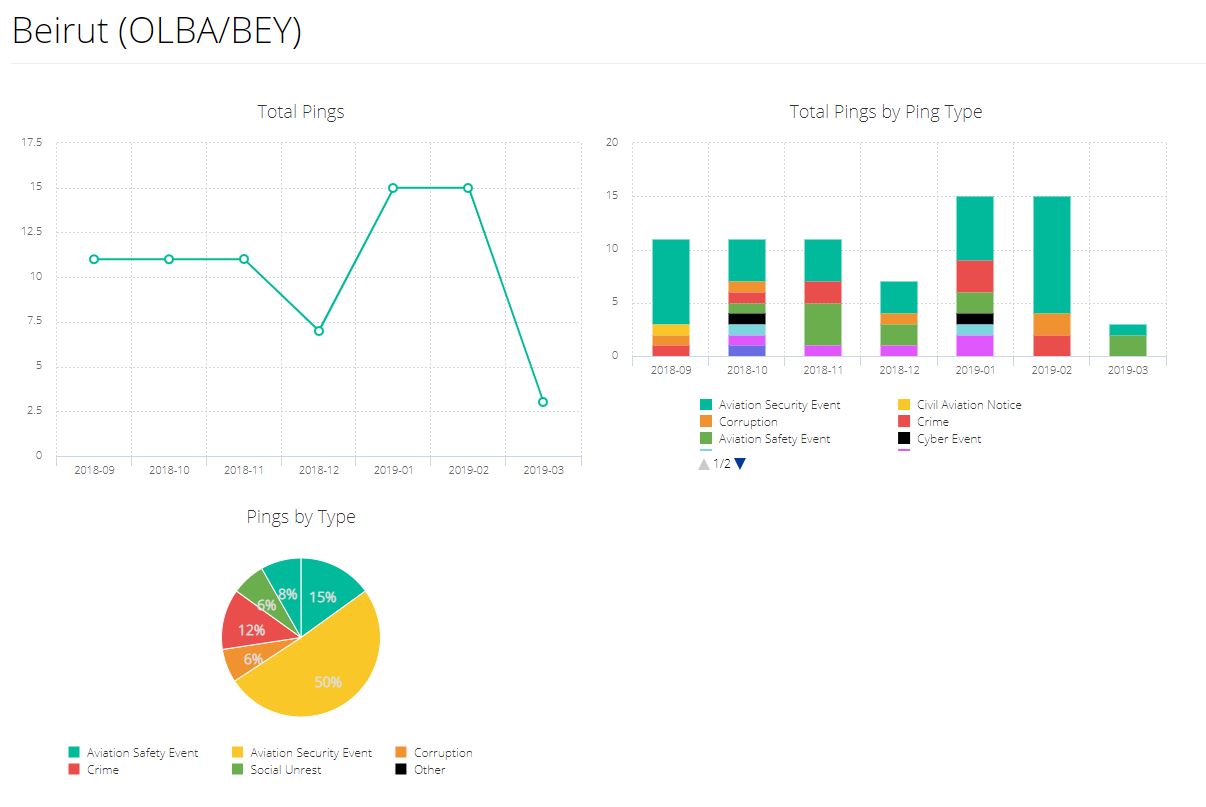On 14th February 2019, the International Civil Aviation Organization (ICAO) completed an audit of Rafic Hariri International Airport, Beirut, Lebanon. Lebanese authorities indicated that the ICAO audit had identified security deficiencies at the installation. The airport issued a statement regarding the issues: “following the instructions of the ICAO and in wake of the security inspection team’s input, additional security measures will be taken regarding passenger carriages leaving the airport, pending the implementation of alternative security measures that will facilitate passengers’ flow to the departure hall”.
Osprey:Explore tells the story from the data

In the situation above, there were clear indicators that such a significant regulatory event was likely. Osprey:Explore tells the story from the data.
During January 2019; the month prior to the ICAO audit, operational incidents at Rafic Hariri International Airport increased over 100% from the previous month. In addition, the number operational incidents at Rafic Hariri International Airport during January 2019 were over 50% higher than both the prior 3 and/or 4 month averages. During the month of the ICAO audit; February 2019, the number of operational incidents at Rafic Hariri International Airport matched the total from the high water mark of the month prior in January 2019, indicating a documented change in the aviation security environment at the installation.
The Osprey:Explore interface allows aviation operators to quickly and easily look at these data trends and monitor them over time in order to identify these risks early and avoid them.







